In the Anglophone part of Cameroon, the crisis escalated. A priest candidate is shot to death in front of his Church by the soldiers. The Archbishop calls for an end to the “senseless spiral of violence”. Adrian Kriesch from Bamenda.
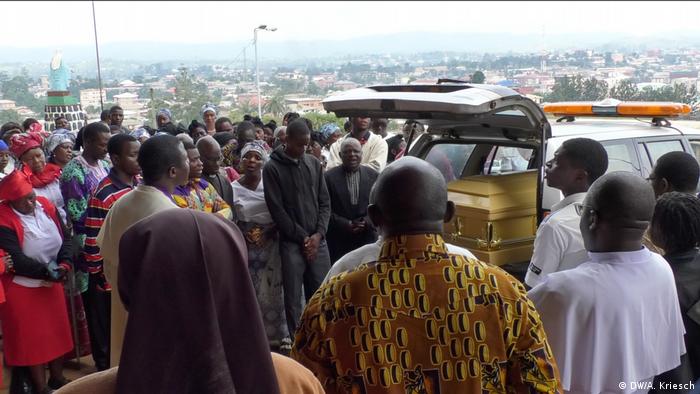
Comfort Akiata can keep pain to the legs, as she approaches her son. Gerard Akiata wearing a white robe, a necklace with a cross on the belly. He lies in an open coffin in the Cathedral of Bamenda. “Good journey, my son,” the mother says, and breaks out in tears.
The 19-Year-old priest, told Comfort Akiata later:”He was my only son. How he died – that’s just disturbing.”According to eyewitnesses, Gerard was shot and killed after a Church service in front of his Church in the vicinity of the provincial capital of Bamenda. Several nurses at a neighbouring hospital had observed the Situation, reported the Archbishop of Bamenda.
Accordingly, the military stopped the vehicle in front of the Church, the surrounding people fled in panic. Gerard hid at the entrance, but was found shortly thereafter. A soldier spoke briefly with him, and the witnesses, ordered him to lie down and shot. Archbishop Cornelius Fontem Esua surprisingly finds clear words: “The army is a Symbol of torture and death,” he says. “They arrest people, torture, kindle houses. That doesn’t make the army – the Amba-Boys.”
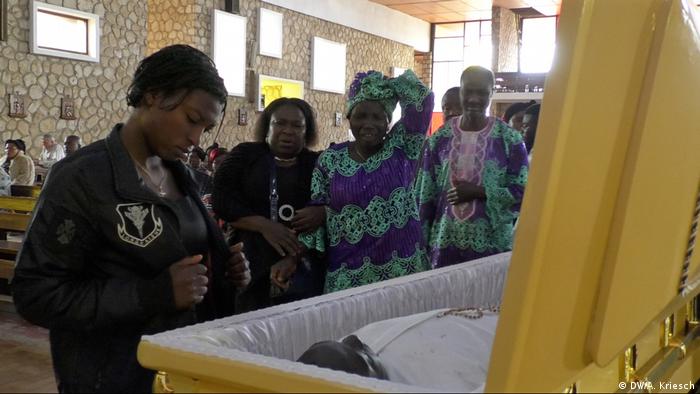
“He was my only son,” says mother Comfort Akiata
Cameroon is in crisis
The Amba-Boys, so that the Archbishop says the separatists fighting for the independence of their own state: Ambazonien. The roots of this conflict date back to the time of the Foundation of the state in the 1960s. At the time, was speaking from a French and an English-speaking mandate of the independent Cameroon. Officially, there is since then, two official languages, two education systems, two legal systems. However, in reality the minority in the Anglophone West Cameroon and feels for years, suppressed and disadvantaged.
At the beginning of 2016, the lawyers first went on the road and, later, teachers, and members of the civil society. The state responded with a heavy Hand – at least six people died, dozens were arrested, and the government imposed a three-month Internet blockade for the entire Region. Subsequently, several armed resistance groups were founded. With hunting rifles and machetes, they fight since then against the Cameroonian military, which was trained to be a part of American and Israeli special forces. 400 civilians are, according to Amnesty International this year alone lost their lives. Against both war parties, there are accusations of human rights violations.
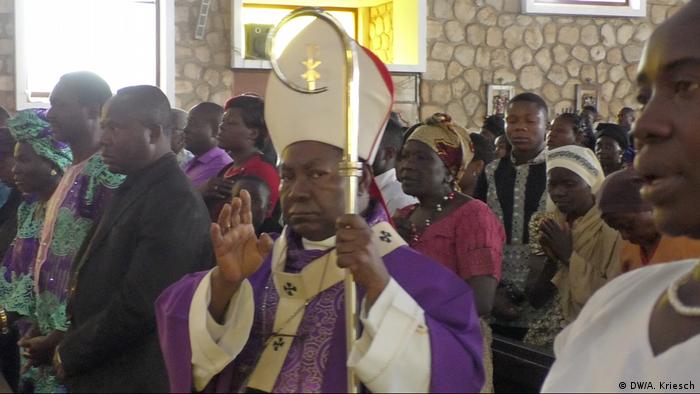
He accused the army of gross human rights violations: Archbishop Cornelius Fontem Esua
Controversial Presidential Elections
Fear and terror have become the everyday life in the former economic capital Bamenda. Soldiers patrol, calling at Checkpoints often bribe money from local residents. For days, a dead body lies on the open road, the military killed a Separatist. No one dare to tell you to bury residents – out of fear of the soldiers.
For almost two years, as a Protest against the government, every Monday is a so-called Ghost town-day. Almost all of the shops remain closed. The seller Joya draws, therefore, on late Sunday afternoon with their wheelbarrow to the streets and called for their plums. “A bag of plums normally costs 200 francs. Now I’m selling them for 100, and later 50. If I not sell you today, you bad,” she says. “Tomorrow, I can’t sell Yes. It’s not going well here. A lot of people are long gone, the city is empty.”
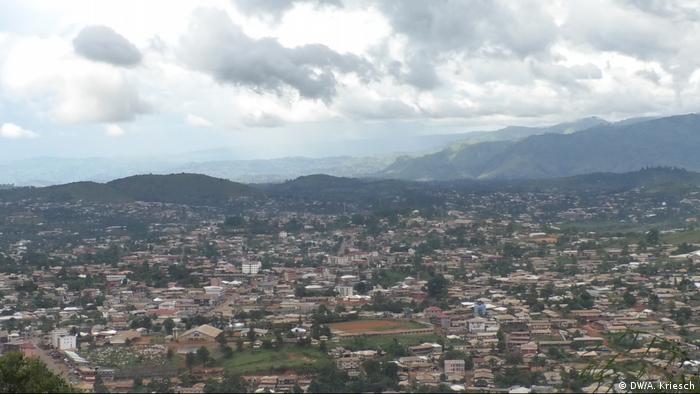
Bamenda: in the past, the center of the economy, now in crisis area
Many here in Cameroon, President Paul Biya for the situation, which has ruled the country for 36 years. In early October, the 85-Year-old in the presidential elections emerged again as the winner, although in many Parts of the country not at all could be chosen. In the North, the Islamist terrorist group Boko Haram is still fighting, in the West remained because of the conflict between the government and the separatists closed local. Election dates was Biya in the Anglophone part of the country. In Bamenda, after all, is the third largest city in the country, he was eight years ago.
Little willingness to engage in dialogue on the part of the government
Cameroonian Official rarely speak to the press about the crisis in the Anglophone part of the country. We go to the office of the Governor of the North-West Region and have luck. Deben Tchoffo is a Confidant of the President and is willing to speak with us. In his reception room, a montage of President Biya’s next to a lion in a military uniform. Including Finger “way of Cameroon.”
Our questions, we had to submit in advance, but shortly before Tchoffo enters the room, informed us that we are only allowed to ask the first question. So the Governor leads a short monologue about the security situation: The elections were well run, the Situation in the Region as a whole was under control. We try to ask what he says to the accusations against the military. “The violations of human rights are we cutting in accordance with the law,” he says, stands up and goes. Questions about the death of Gerard Akiata are also possible.
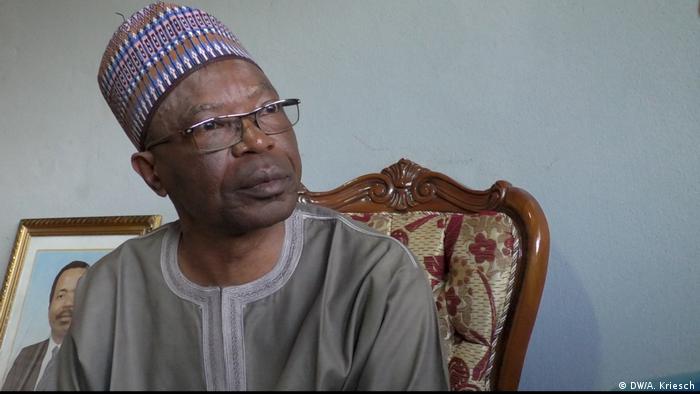
Deben Tchoffo, Governor of the North-West Region of Cameroon says the Situation is under control
The Bundestag debated over Cameroon
The appointment with the Governor Tchoffo shows the lack of willingness to engage in dialogue with the government, which is also the Archbishop of Bamenda complained again and again. Cornelius Fontem Esua calls for a complete Amnesty, and then talks between the parties in the Crisis, so that the “senseless spiral of violence” has come to an end. Even abroad, could help with the pressure on the government, but so far this had happened.
In the German Bundestag, although last week was a discussion over the situation in Cameroon. Opposition politicians spoke of state terrorism and a President who for months abroad, “entire floors of five star Hotels”. Even members of the Grand coalition took the words such as bad governance, nepotism and corruption in the mouth. However, the request for more German involvement in the containment of the crisis in Cameroon was ultimately rejected.